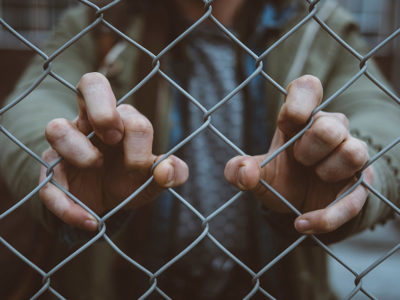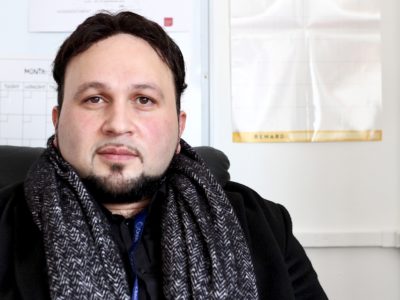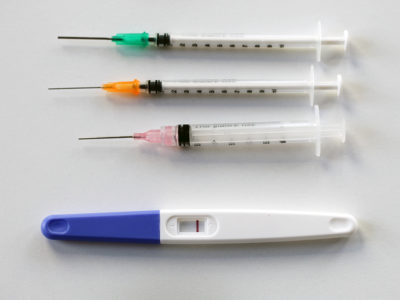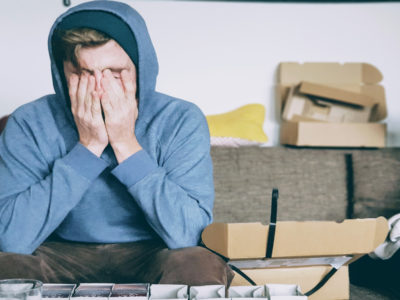Legal Aid, Sentencing and Punishment of Offenders Act 2012
The legal aid cuts saved Britain’s government money, but at what personal cost?
The act (LASPO) was introduced in 2012 due to increasing financial strain on the legal aid budget and as an attempt to help reduce the national debt. The scheme removed financial aid for cases involving immigration, housing and welfare among others.
In 2016, Amnesty International stated that there was a disproportionate impact on disadvantaged groups, including refugees, echoing the earlier remarks by the Human Rights Committee.
The UK has a legal duty to provide access to justice which is not always met when legal aid is targeted incorrectly. A 2012 report by the Special Rapporteur on extreme poverty and human rights said that legal aid is a vital mechanism to help those without means to afford justice get what they deserve. They went on to say that those living in poverty are likely to the ones in most need of the service due to legal issues with welfare benefits, debt and immigration.
In February 2019 the Ministry of Justice conducted a review into the legal aid cuts but refused to roll back LASPO as it relates to immigration work. There are still some instances in which legal aid is offered, however LASPO has significantly reduced the help that is available to those struggling.
Character profile
An inside look at a refugee’s life
Paul, a 28-year-old refugee from Sierra Leone, asked for his name to be changed. He fled his native country as homosexuality is outlawed, therefore he could not open up and live freely. His family discovered he was gay and tried to kill him so that he didn’t bring shame to them.
He managed to escape with the help of a white man he met on a beach in west Sierra Leone. They co-ordinated his flights out of the country over the phone, but Paul’s struggles did not end there.
Once in the UK the man who helped him escape allegedly treated Paul as a slave, forcing him to commit sexual acts without consent. His abuser was a drunk, and one day left the door unlocked meaning that Paul managed to escape. Speaking of his life in the UK, Paul says, “I have had lots of struggles. I have no family or friends, so it has been very difficult.”
Once he was granted his Right to Remain, Paul was given 28 days to leave his residence which caused further problems. Single men are likely to be homeless in this period, as they are not prioritised on the housing lists. In Cardiff, there are six bands of priority for housing allocation, with the top categories A and B being reserved for people with a local connection to Cardiff. This means that refugees are already low on the list for council housing, and when the applicants are also single males with no dependants that reduces their position further. Despite this, Paul says life has become easier as he is now able to work. He says, “British people are very lovely and friendly, I can live freely here with my sexuality with no discrimination.”
One of his key memories is attending Cardiff Pride with Hoops and Loops, a new experience for everyone including Mark. Paul describes it as, “The best thing for those from different countries that has happened in our lives in the UK. Everyone was together and expressing their sexualities, it’s lovely.”
Since Paul has been granted Right to Remain he is able to start planning for the future. His goal is to help people and he wishes to become a nurse in the UK.
Looking to the future
In light of all the traumatic experiences these people have gone through to get to the UK, what are their goals for their new lives?
Ghaida, 21, Saudi Arabia
“I’m a survivor. I want to be 100% independent, live my life with freedom and achieve my
educational dream of becoming a nurse, that my family forbid.”
Zak, 24, Saudi Arabia
“I would like to do a Masters in Business. I have ideas for shops and companies. I want to be more
active with LGBT+, human and women’s rights. I want to make a difference in the world.”
Hamza, 41, Uganda
“I want to work as a nurse, it was my childhood dream.”
John, 36, Tanzania
“I want to work.”
Chike, 20, Nigeria
“It is difficult to plan when there are so many unknowns.”
Soloman, 47, the Congo
“Survival. I can’t make plans for the future.”
Uvanga, 23, Namibia
“To remain in the UK.”
LGBT+ refugees deal with persecution due to their sexuality in their home nations; with no benefits or opportunity to work, how do they survive?
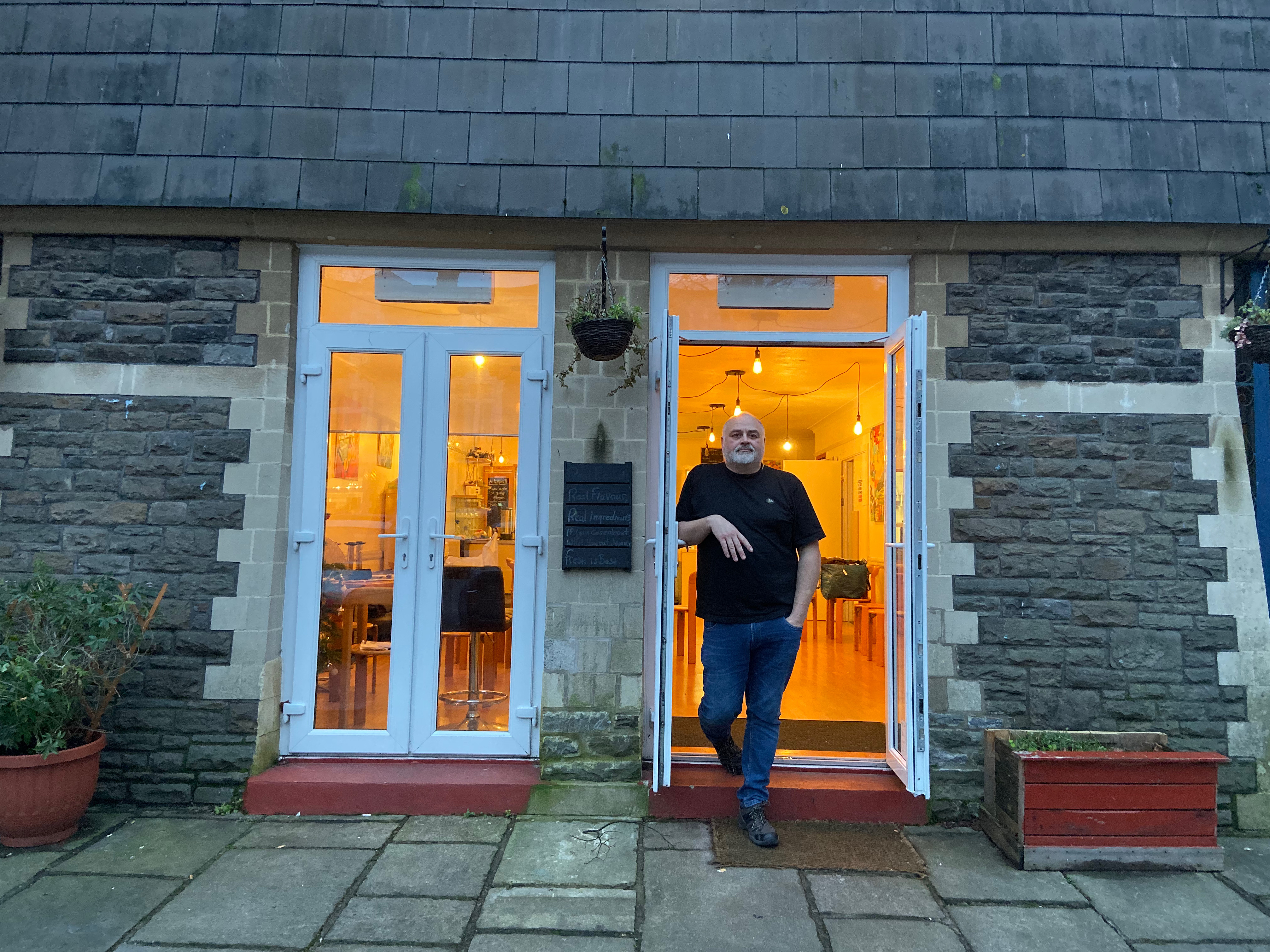
The UK is a common destination for LGBT+ refugees for a multitude of reasons, however not all are fleeing their native country due to civil unrest.
In some countries there is such instilled homophobia that being LGBT+ is a crime punishable by death and people belonging to this community must make a choice whether to live a lie or to flee and have the chance to be themselves. While the UK still has issues with homophobia, it is much safer here despite the poverty refugees in this country face.
In the year ending September 2019, the UK offered 19,480 people protection and asylum. To train a doctor in the UK it costs roughly £200,000-£250,000 yet to sustain a practising refugee doctor it is around £25,000. The Refugee Council estimates 1,200 of the people in the British Medical Association’s database are refugees. National services rely on the support of people from outside the UK, yet we do not grant them the opportunity to work and sustain themselves.
LGBT+ refugee support
In Cardiff, there is an organisation called Hoops and Loops that runs from the City United Reform Church on Windsor Place. It acts as a safe space for LGBT+ refugees and asylum seekers to meet and combat the social isolation. They have not yet gained charitable status however this is something that chairman Mark Lewis, 50, is working towards.

Mark funds the organisation from his disability benefits following a stroke that caused temporary paralysis. This caused him to lose his house, however he says it gave him a shared experience with the members of the group and brought a relevance to his work. There are members of the community that help fund the group too but as Hoops and Loops pays for food and transport, they are constantly in need of more money.
Speaking to some of the refugees at a Hoops and Loops meeting, their reasons for leaving were all linked to their sexuality. Ghaida, 21, from Saudi Arabia says, “A woman can’t have simple rights like driving or working, that’s the worst thing.”
Zak, 24 also escaped Saudi Arabia, but he fled as he is transgender. He says, “There is no life there, no rights and no-one there supports me. Being trans is against Islam and if the police were called I would have been killed.”
The Human Dignity Trust reports that being LGBT+ is illegal in 72 countries and Hamza, 41, from Uganda says, “I face life imprisonment and prosecution. It’s a Muslim country so I am an abomination. I will be killed and bring shame on my family.” This persecution is the reason many LGBT+ refugees choose to face poverty in the UK as it gives them the chance to live freely.

Until 2008, asylum support increased in line with income support. In August 2015 the support was set at a constant rate for all beneficiaries, meaning that single parents and families faced serious cuts. The current rate according to gov.uk is set at £37.75 per person per week, however many refugees said in reality they were receiving £32 to £37.50 a week, depending on whether the government had paid their support correctly the week prior.
“We’re living in extreme poverty”
The refugees attending the meeting were all asked if they felt like they were living in poverty, and the responses were a resigned yes. Soloman, 47 from the Congo says, “I am financially and mentally struggling, it’s hard to live on £5 a day. You have got to accept it, you can’t help it.”
John, 36 from Tanzania put it simply, “We’re living in extreme poverty.” Many said there was barely enough money for basic living costs, especially due to inflation increasing prices but not affecting their benefit allowance.
Food and housing
When asked if people ever go without food Mark answered, “Yes, but they won’t tell me. I’ve always wanted kids of my own and now I’ve got 50 of them. I will do what any father would do to make sure they’re well and have food.” Many refugees say they prioritise food and batch cook in an attempt to save money. It was clear that they rely heavily on the support Mark gives in order to remain healthy, well and nourished as the financial support they receive from the government is lacking.
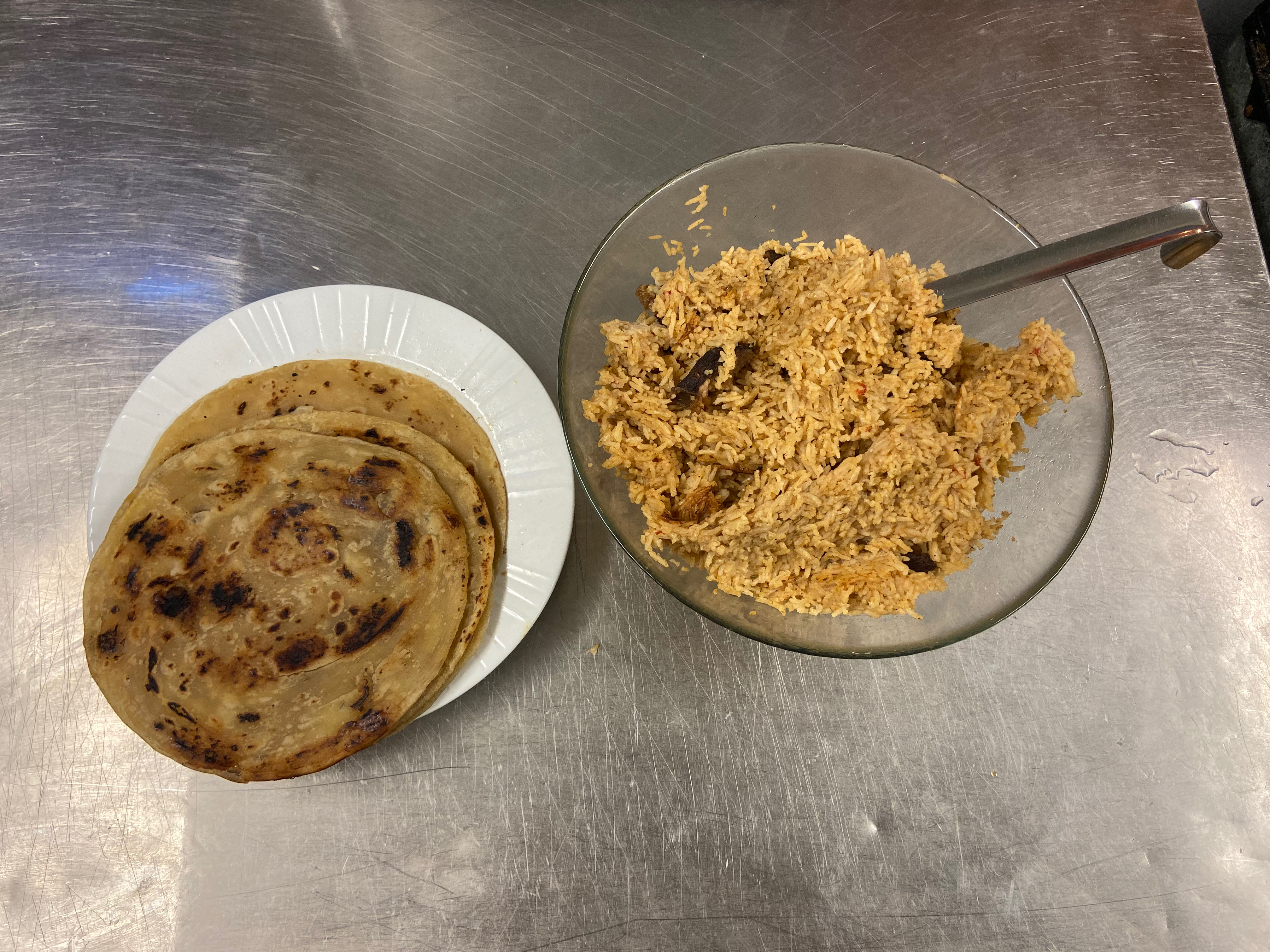
He says that the struggles faced by refugees are only magnified if they are LGBT+, as this causes further issues with shared housing due to the potential for homophobic violence. Mark says, “I feel as if the refugees are being exploited by housing companies, they’re just being used.” He has seen houses with damp running down the walls, light fittings hanging from the ceiling, curtains held up with string and a mattress on the floor as a substitute for a bed.
The refugees have been known to live without hot water and heating for over a week. In one instance a shower head broke and the tenant was instructed to buy a new one from B&M for a cost of £5, or a day’s living allowance. These people have all fled persecution for safety in the UK, and they are being forced to choose between basic hygiene and food for the day.
Speaking of the situation some of the refugees are in, Mark sadly stated, “They’ve gone through what they’ve gone through because they want to be free and live like others. Some have kids and some are separated from their families. I just want them all to be safe and seen as equals.”
Legal Aid, Sentencing and Punishment of Offenders Act 2012
The legal aid cuts saved Britain’s government money, but at what personal cost?
The act (LASPO) was introduced in 2012 due to increasing financial strain on the legal aid budget and as an attempt to help reduce the national debt. The scheme removed financial aid for cases involving immigration, housing and welfare among others.
In 2016, Amnesty International stated that there was a disproportionate impact on disadvantaged groups, including refugees, echoing the earlier remarks by the Human Rights Committee.
The UK has a legal duty to provide access to justice which is not always met when legal aid is targeted incorrectly. A 2012 report by the Special Rapporteur on extreme poverty and human rights said that legal aid is a vital mechanism to help those without means to afford justice get what they deserve. They went on to say that those living in poverty are likely to the ones in most need of the service due to legal issues with welfare benefits, debt and immigration.
In February 2019 the Ministry of Justice conducted a review into the legal aid cuts but refused to roll back LASPO as it relates to immigration work. There are still some instances in which legal aid is offered, however LASPO has significantly reduced the help that is available to those struggling.
Character profile
An inside look at a refugee’s life
Paul, a 28-year-old refugee from Sierra Leone, asked for his name to be changed. He fled his native country as homosexuality is outlawed, therefore he could not open up and live freely. His family discovered he was gay and tried to kill him so that he didn’t bring shame to them.
He managed to escape with the help of a white man he met on a beach in west Sierra Leone. They co-ordinated his flights out of the country over the phone, but Paul’s struggles did not end there.
Once in the UK the man who helped him escape allegedly treated Paul as a slave, forcing him to commit sexual acts without consent. His abuser was a drunk, and one day left the door unlocked meaning that Paul managed to escape. Speaking of his life in the UK, Paul says, “I have had lots of struggles. I have no family or friends, so it has been very difficult.”
Once he was granted his Right to Remain, Paul was given 28 days to leave his residence which caused further problems. Single men are likely to be homeless in this period, as they are not prioritised on the housing lists. In Cardiff, there are six bands of priority for housing allocation, with the top categories A and B being reserved for people with a local connection to Cardiff. This means that refugees are already low on the list for council housing, and when the applicants are also single males with no dependants that reduces their position further. Despite this, Paul says life has become easier as he is now able to work. He says, “British people are very lovely and friendly, I can live freely here with my sexuality with no discrimination.”
One of his key memories is attending Cardiff Pride with Hoops and Loops, a new experience for everyone including Mark. Paul describes it as, “The best thing for those from different countries that has happened in our lives in the UK. Everyone was together and expressing their sexualities, it’s lovely.”
Since Paul has been granted Right to Remain he is able to start planning for the future. His goal is to help people and he wishes to become a nurse in the UK.
Looking to the future
In light of all the traumatic experiences these people have gone through to get to the UK, what are their goals for their new lives?
Ghaida, 21, Saudi Arabia
“I’m a survivor. I want to be 100% independent, live my life with freedom and achieve my
educational dream of becoming a nurse, that my family forbid.”
Zak, 24, Saudi Arabia
“I would like to do a Masters in Business. I have ideas for shops and companies. I want to be more
active with LGBT+, human and women’s rights. I want to make a difference in the world.”
Hamza, 41, Uganda
“I want to work as a nurse, it was my childhood dream.”
John, 36, Tanzania
“I want to work.”
Chike, 20, Nigeria
“It is difficult to plan when there are so many unknowns.”
Soloman, 47, the Congo
“Survival. I can’t make plans for the future.”
Uvanga, 23, Namibia
“To remain in the UK.”


